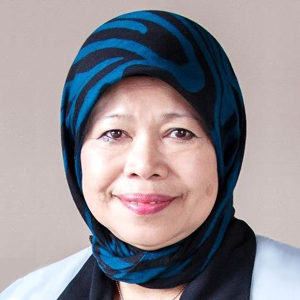Summary:
STEM-STEAM learning in early childhood has become a huge educational movement in recent years. It is a cross-disciplinary education approach – meant to make learning real, practical and relevant to children’s daily lives. In Malaysia, STEM-STEAM learning was introduced for the first time in prekindergarten classes in 2015 through this pilot study, in order to inculcate a love for STEM learning at a young age, in hopes it will continue throughout the rest of their eduation (National Education Blueprint 2013-2025, MOE, 2013). This research is a preliminary small-scale study which aims to determine the feasibility of involving 3-4 year old children in STEM-STEAM education, and the possibility of integrating it into the National ECE (PERMATA) Curriculum. In addition, this research also aims to determine the effect of STEM-STEAM education on the ability to inquire, explore, invent, and reflect, alongside the interest, communication and cooperation among children who were involved in the study.
A total of 10 STEM-STEAM projects modules were developed and validated by experts and early childhood teachers. 22 ECE teachers and 160 children from 19 ECE PERMATA centres were involved as respondents. All the 22 teachers were given a three-day intensive training course before implementing the STEM-STEAM modules at their centres. The effect of the training was gauged through pre- and post-training questionnaires, and analysed using a single group pretest-posttest design. Upon completion of the training, the teachers were asked to conduct the STEM-STEAM projects modules at their centres. The findings indicated that all the STEM-STEAM modules developed using the Project-based Inquiry Learning (PIL) approach were efficiently implemented, with 95% of the teachers having implemented between 4 to 5 modules in 5 months. The effects on the children showed a significant increase (p<.001) in their abilities to inquire, explore, invent, and reflect, and equally, on their interest, communication skills, and attitude towards cooperation. The effect of STEM-STEAM training towards teachers indicated a very large significant increase in terms of knowledge, skills, and self-confidence in implementing STEM-STEAM projects. The overall outcome indicates that it is feasible to implement STEM-STEAM education in ECE PERMATA curriculum, and with 3-4 year-old children in Malaysia. Several recommendations were given to the government for consideration.
>>Read the full article (PDF)
https://www.childresearch.net/projects/pdf/projects_fullpaper_2020_03.pdf
This paper was originally delivered as a keynote lecture at the Third International Conference of Child Research Network Asia (CRNA), held in September, 2019 in Jakarta, Indonesia.
Profile:
 Aminah Ayob
Aminah Ayob
Professor Emerita Dato' Dr. Aminah Ayob is Professor Emerita of Education at Sultan Idris Education University (SIEU), where she headed the varsity as Deputy Vice Chancellor from 2006-2008. and as Vice Chancellor from 2008-2011.
She obtained her PhD. in Science Education and Cognitive Development from the University of Keele in the United Kingdom and M.Sc. from University of Iowa, USA.
Throughout her academic career, she has conducted various research projects on science education and the learning and development of children, and has been on education policy committees both at national and international levels.
Her most recent research project focuses on Science, Technology, Engineering, and Mathematics (STEM) education for preschool children.
Latest Posts in this Category:



 Aminah Ayob
Aminah Ayob










